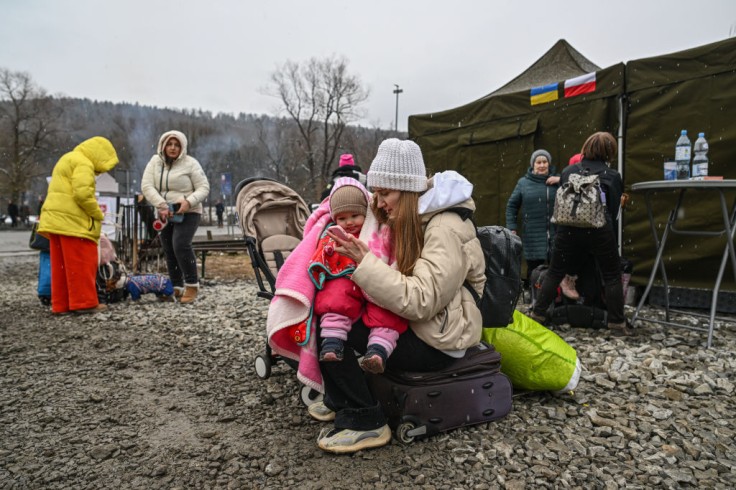
Life is tough in war-torn Ukraine nowadays. With Russian troops increasing their attacks on civilians as they try to bring Ukraine to its knees, the humanitarian crisis that is unfolding in the country just keeps on worsening. Among the victims of this senseless war are Ukrainian mothers, who gave birth during the ongoing conflict with Russia.
That was the case for Mariia Shostak, a 25-year-old woman who lives in the Ukrainian capital city of Kyiv. She recently talked to the United Nations' sexual and reproductive health agency, UNFPA, about the struggles she has been facing as a new mother in a war zone.
Shostak described the difficult conditions she endured while bringing a new life into a very dangerous world. According to Shostak, she had a complicated pregnancy so she went to the maternity hospital early so that she and her baby would be under constant medical supervision.
Shostak's contractions come as Russia starts its invasion
Shostak knew something was up when she woke up on February 24 with her phone's screen filled with messages from relatives. Shostak had a feeling that something terrible happened even before she opened those messages.
Russia's invasion of Ukraine was terrible timing for Shostak as she started having light contractions on that same morning. The seriousness of the situation ratcheted up during the afternoon when hospital officials ordered the evacuation of their patients to the basement shelter for the first time since Russia launched their large-scale military offensive.
Shostak admitted that it was scary and that she was not able to sleep at night because of the Russian onslaught. It did not help matters for Shostak that her contractions intensified during the evening.
A doctor examined Shostak in the early morning of February 25 and told her that she would finally give birth that day. Shostak called her husband at home to come quickly to the hospital for the delivery. Shostak's husband, Yurii, took almost four hours to reach the hospital as long queues at the shops, pharmacy, and gas stations delayed his arrival.
Shostak among the lucky ones to have given birth in a hospital
Shostak considers herself lucky as she was able to deliver her baby in a room that was really set up for that purpose. Shostak said that she started in the delivery room before being transferred by doctors to an operating room for a Caesarean section. There were tense moments during her delivery as air raid sirens suddenly went off, with medical staff urging her to evacuate to the basement for their safety.
Shostak opted to stay in the operating room with the pain so much for her to bear. According to Shostak, such was the pain she experienced that it made her forget about the war. The operation was a success but the challenges she faced did not end there.
With air raid sirens sounding round the clock because of the Russian bombings, Shostak was forced to go down to the basement and up to the maternity ward multiple times. Fatigue, fear, and pain set in for Shostak one day after her surgery.
The reality set in for her when she saw a projectile hit a high-rise building that they could see from the window of their hospital. Despite the Russian forces closing in on Kyiv, Shostak said she is not going to leave the capital with her husband and child.